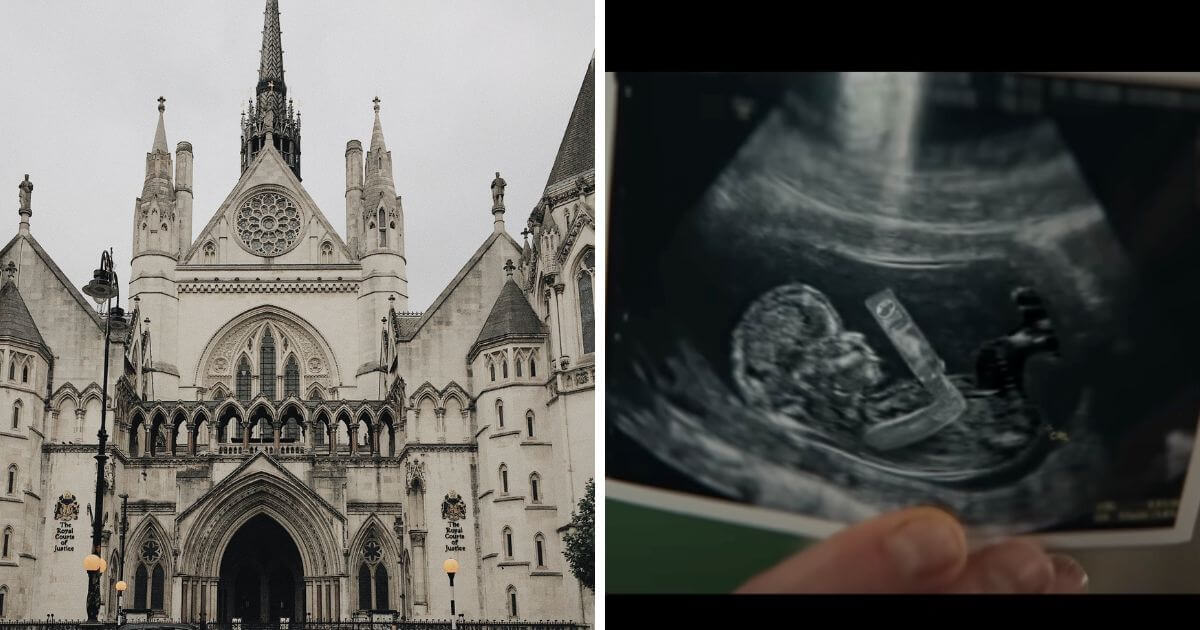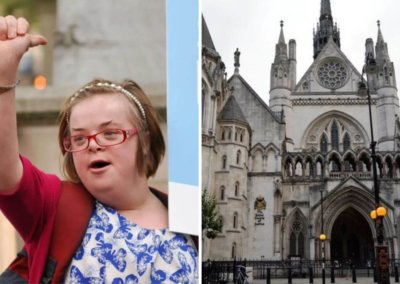Last month, Carla Foster, a 44-year-old woman, was sentenced to 28 months in jail at Stoke-on-Trent Crown Court after the UK’s largest abortion provider, the British Pregnancy Advisory Service (BPAS), sent her abortion pills that she used when her baby, Lily, was at at least 32 weeks gestation.
Foster appeared today via video at the Court of Appeal in London to challenge her prison sentence. Her hearing was before Dame Victoria Sharp, Lord Justice Holroyde and Mrs Justice Lambert.
Dame Victoria, the appeal judge, insisted there was “exceptionally strong mitigation” in Ms Foster’s case and she should be released from prison “immediately”. During the appeal, Ms Foster’s sentence was reduced from 28 months to 14 months in prison and was suspended.
“This is a very sad case”
Dame Victoria added “This is a very sad case, not least because of the length of the gestation when the offence was committed”.
In the June hearing, Ms Foster admitted to lying to abortion provider BPAS to procure the pills needed to cause the abortion. The abortion provider did not assess her in person and so her gestation was not verified beyond the information Ms Foster provided remotely.
Ms Foster’s story caused public shock after it was revealed that she ended her pregnancy when her baby, Lily, was between 32 and 34 weeks gestation. BPAS’ ‘pills by post’ scheme provides chemical abortions up to 10 weeks gestation, but Ms Foster used the ‘pills by post’ scheme to end her pregnancy at least 22 weeks after this limit.
BPAS shirking responsibility and calling for abortion up to birth to be introduced
Rather than take responsibility for sending out abortion pills 22 weeks beyond the legal limit for at-home abortions and risking the health of the mother as well as her unborn child, abortion provider BPAS is now cynically using this woman’s tragic experience of its abortion service to lobby the Government and MPs to introduce abortion up to birth throughout the United Kingdom.
BPAS has been campaigning for this law change and has made it explicit that it is campaigning to remove all gestational time limits for abortion. This position was affirmed by its then CEO, Ann Furedi, who, at the launch of the campaign to ‘decriminalise’ abortion stated, “I want to be very, very clear and blunt … there should be no legal upper limit”.
Out of touch with the public
Proposals to introduce abortion up to birth are out of line with where women stand on the issue. Polling from Savanta ComRes on whether time limits for abortion should be increased showed that only 1% of women in Great Britain wanted the time limit to be extended to more than 24 weeks and 1% wanted it to be increased right through to birth, in contrast to 70% of women who favoured a reduction in time limits.
There has been shock expressed by a large number of people online, many of whom hold a pro-choice position on abortion, regarding the abortion of baby Lily taking place when she was at 32 weeks gestation.
Michelle Dewberry, who is pro-choice, said that procuring a late-term abortion at 32-34 weeks isn’t ‘healthcare’. She shared a picture of her son when he was born at 31 weeks and who is now a happy toddler.
Allison Pearson pointed out that the baby could have easily lived unaided outside the womb and said that no one should have the right to abort a baby at 32 weeks gestation.
Sophie Corcoran, who was born at 28 weeks, said that she believes abortion is necessary in some cases but that “abortion at 32/34 weeks” is not healthcare.
Right To Life UK spokesperson Catherine Robinson said “We are calling for the reinstatement of in-person appointments before abortions take place to ensure that the gestation of babies can accurately be assessed.”
“We are also calling for a full inquiry into the abortion provider, the British Pregnancy Advisory Service, for sending out abortion pills to a woman whose baby, Lily, was 22 weeks beyond the legal limit for at-home abortions.”
“The Government must firmly reject changing legislation to make abortion legal right up to birth, as is proposed by abortion campaigners, led by BPAS, who are using this tragic case to call for the removal of more abortion safeguards and to build momentum for their campaign to introduce abortion up to birth across the United Kingdom.”
“At at least 32 weeks or around 8 months gestation, Baby Lily was a fully formed human child. If her mother had been given an in-person appointment by BPAS, she would still be alive.”












